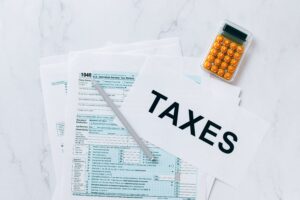Quarterly Estimated Tax
Who is required to pay Quarterly Estimated Tax?
Individuals who are self-employed or receive income from independent contractors that is not subject to tax withholding should pay their taxes to the IRS on a quarterly basis. Additionally, those who owed money when they submitted their tax return for the current year sometimes find themselves in the same circumstance when they file for the next year. The typical taxpayers in this scenario are:
What is taxed?
The majority of income is taxed, the IRS reminds Americans. This includes earnings from the gig economy, interest on refunds, and earnings from digital assets. Taxpayers should factor in all sources of earned income when estimating their quarterly tax payments, including income from side hustles, part-time jobs, and the sale of items. Various financial transactions can frequently have an unanticipated tax consequences, especially ones that occur late in the year. A few examples are year-end and holiday bonuses, stock dividends, capital gain distributions from mutual funds, and the sale of profitable stocks, bonds, virtual currencies, real estate, and other types of property.
How to avoid penalties
Withholding, estimated tax payments, or a mix of the two can all help you avoid getting a surprise tax bill at tax time and the often-applied penalty. Making a payment promptly to make up for missing payments would often reduce and may even eliminate any potential penalty if a taxpayer fails to make necessary quarterly estimated tax payments earlier in the year.
Key Points:
Individuals who are self-employed or receive income from independent contractors should pay their taxes to the IRS on a quarterly basis. Taxpayers should factor in all sources of earned income when estimating their quarterly tax payments, including side hustles, part-time jobs, and the sale of items.
Reference:
https://www.irs.gov/businesses/small-businesses-self-employed/estimated-taxes

